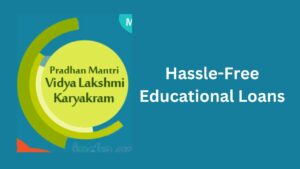Education fosters the development of the future generation to become intelligent, responsible, and forward-thinking citizens. As educators, we strive to create only the best learning experiences for our students. However, education is continuously evolving, and the learning needs of students are changing. Teachers and educators must balance these dynamics and create better student learning opportunities each year.
This article will discuss various ideas to raise education standards in schools. We urge you to identify the areas for improvement in your institution and adopt the idea that suits your school the best.
7 Ways to Improve Quality of Education in Schools
- Student-Centric Learning – In the 21st century, education has become learner-centric. Institutions that pay heed to the diverse learning needs of their students and offer learning experiences wherein learners can decide the pace and medium of instruction are considered the best. Instead of teaching in a conventional lecture hall setting, try new teaching methods in your school. Application of concepts learnt from books can help students appreciate the significance of the knowledge they have gained. It will help them understand how to apply the concepts in practical life.
- Provide Opportunities to Teachers – Offering teachers better opportunities for professional growth is an integral part of school improvement. Educational institutions that support their teachers by running regular training programs and supplying classrooms with the requisite digital aids witness significant improvement in their students’ performances. Simply installing smart classroom apps on a teacher’s laptop is not enough. Schools should invest time in training their teachers to use smart classroom management apps to enhance the learning environment.
- Inclusive Learning Environment – Inclusivity in education is vital to shaping an inclusive mindset for the citizens of tomorrow. Teachers should not only be open-minded towards all their students; they must get the support they need to create an inclusive learning environment. Schools should provide academic support, counselling services, and training for teachers – to help them understand the learning needs of differently-abled children. When teachers create a classroom where students of all ethnicities and abilities feel safe to express themselves, pursue knowledge, and find friends – only then can it be considered an inclusive learning environment.
- Implement Technology in Classrooms – At a time when technology is an integral part of our lives in every aspect, it must be leveraged in education also. Schools should strive to create digital smart classrooms wherein students can have interactive lessons to apply the concepts they learn and use technology to enhance their learning. Implementing technology in a classroom does not necessarily mean increasing costs and heavy investments. With careful consideration and planning, schools can implement the necessary technology without spending more than usual.
- Extra-Curricular Activities – All schools must strive to conduct diverse school activities to give students a chance to hone their talents in different fields. Pressurizing students to focus solely on rote learning can cause burnout, and students may lose interest in their studies. To improve education quality, all schools should have sports facilities where students can practice different games and sports. Apart from sports, other co-curricular activities that students enjoy are arts, theatre, debates, dance, and music. Spending time in these activities every week can help learners sustain their interest in education.
- Encourage Parent Engagement – Involving parents in children’s education helps the students improve their learning and contributes to the well-being of the entire society. Parents can play an essential role in encouraging their children and helping them learn better in school. Regular meetings with parents to discuss the student’s progress or concerns can help them contribute positively to their child’s education. Modern schools often invite parents to participate in school events or take responsibility for school communication. Sometimes, parents are happy to offer voluntary support regarding money, equipment, or time to help with school trips or events.
- Continuous Feedback and Evaluation – Appreciating constructive feedback and regularly evaluating the system is essential for improvement in every field. Schools that want to improve the quality of education their institution offers should also pay heed to feedback. Create channels for students and parents to give feedback whenever needed. Every few months, evaluating the student’s performance in different activities or tests can help the school find areas for improvement. Parents and students also appreciate a school where the authorities are approachable and their input is valued.
Improving the quality of education in a school is easier said than done. Educational institutions persistently pursue excellence and continue to evolve as they adapt to the learning needs of newer generations of learners. However, schools must adopt a multi-faceted approach that leads to a wholesome development of their school rather than building perfection in just one field. Overall, creating a safe and inclusive learning environment, leveraging digital learning tools, and building a solid relationship with students and parents are the cornerstones of successful education.
Adopting the strategies listed above, you can turn your school into an efficient and effective ecosystem of education. A place that values the learners’ needs and offers a rewarding educational experience is always considered an esteemed institution.
Author Bio: Aanya Kapoor, is a content marketer with Extramarks. Along with her team, she develops content relevant to the 21st-century education ecosystems. Her content revolves around topics such as smart learning technology in education, modern parenting, as well as other education topics. Her writing combines her knowledge and personal interests, making her a valuable resource for those seeking insights into education and parenting. Beyond her professional expertise, she’s an avid reader, a globe-trotter who explores diverse cultures, and a passionate gardener.

![Top 10 Best Universities in North East India [2023] 12 Best Universities in North East India](https://educerecentre.com/wp-content/uploads/2023/03/Top-10-Best-Universities-in-North-East-India-300x157.jpg)

